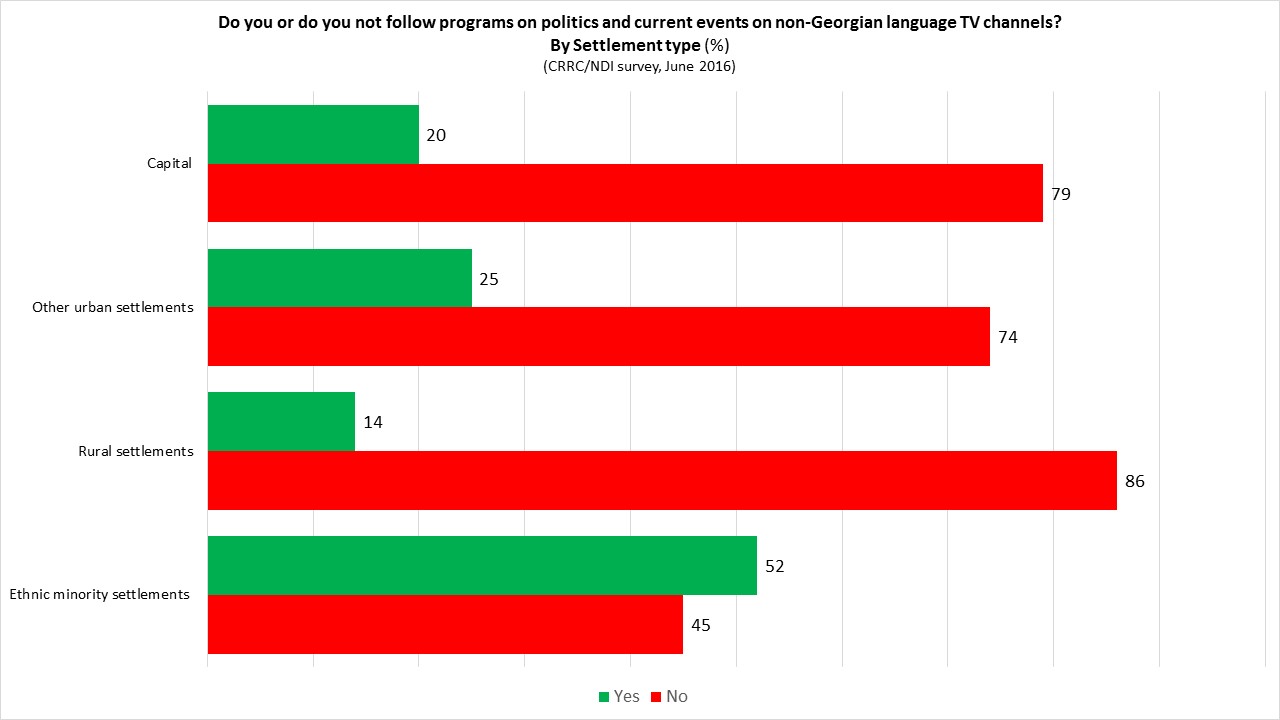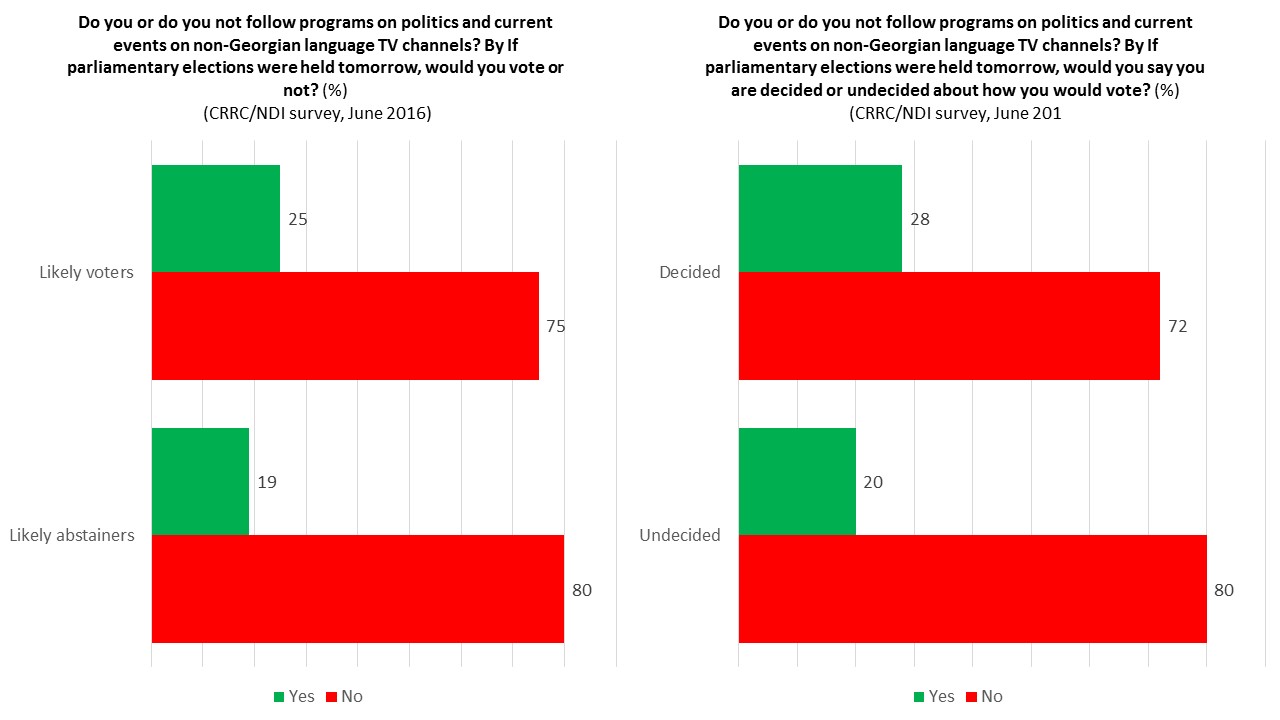Foreign influence in Georgia’s media is a popular topic of discussion for the press, academic researchers, politicians, and press freedom watchdog groups alike. However, they focus mainly on media sources’ countries of origin, content of news reporting, and the effect(s) on public opinion in Georgia. Missing from the conversation is an understanding of who actually consumes foreign media in Georgia. This is an important piece of the puzzle. A link between foreign media consumption and voting behavior in Georgia is a popular supposition, but is impossible to test without an understanding of who foreign media’s audience is. The June 2016 CRRC-NDI survey Public Attitudes in Georgia provides interesting information about some characteristics of foreign language TV viewers in Georgia. Notably, the survey results show that while more viewers of news programs on foreign language TV channels reported that they would vote if elections were held tomorrow, there are not large differences in support for the four major political parties in Georgia between those who watch news on foreign TV and those who only watch Georgian-language news programs.
TV is the main source of information about politics and current events for a majority of Georgia’s population—77% pick TV as their primary source, and an additional 12% choose it as their secondary source. However, only 23% of the population of Georgia, irrespective of whether they name TV as their primary or secondary source of information, reports watching programs on politics and current events on foreign TV channels. Four out of the five most frequently mentioned foreign language TV channels watched by these 23% broadcast in the Russian language (Russia Channel One, RTR, Russia 1 and Russia 24), while the fifth (Euronews) broadcasts in both English and Russian.
How does the 23% of Georgia’s population that watches programs on politics and current events on foreign TV channels compare demographically and politically to the rest, who report only watching news on Georgian-language channels? Some characteristics of the former group are intuitive. For example, about half of the population of ethnic minority settlements (52%) report watching the news on foreign language TV channels. In contrast, only a quarter of the population in urban settlements outside of Tbilisi report watching the news on foreign language TV channels, while those living in Georgia’s rural non-ethnic minority settlements report the lowest viewership (14%).

On the other hand, some characteristics of foreign news program audiences in Georgia are not as obvious. For example, a slightly higher share (25%) of those who reported that they would vote in parliamentary elections if they were held tomorrow watch foreign language news programs than likely abstainers (19%). Twenty-eight percent of decided voters also reported that they follow programs on politics and current events on foreign channels, compared to 20% of undecided voters.
Note: A 10-point scale was used to record the answers to the question, “If parliamentary elections were held tomorrow, would you vote or not?”, where option 1 corresponded to the answer “Certainly will not vote”, and option 10 corresponded to the answer “Will certainly vote”. For this blog post, the original scale was recoded, so that those choosing option 10 were coded as “Likely voters” (67%), while all those choosing options were grouped into “Likely abstainers” (33%).
If viewers of foreign TV news report slightly more often that they are likely to vote, and that they have made a decision regarding who to vote for, the question emerges – are their political affiliations any different from their counterparts who only watch domestic TV news? Interestingly, the party preferences of the two audiences show no statistically significant differences between them. Even when the data are separated further to distinguish between viewers of Russian-language TV and other foreign language TV, there is no difference in reported party preferences between the groups.
Hence, watching programs on politics and current events on foreign TV channels does not appear to tilt voters towards particular parties. Deciding which political party to vote for in Georgia is a complex process. Understandably, voters take into account a large number of individual, social, and political factors when making decisions at the voting booth. While viewers of foreign TV news may be slightly more willing to vote, and surer of their voting choices, the choices they make are similar to those who watch domestic TV channels.
To explore the data in more depth, try CRRC’s Online Data Analysis tool. If you are interested in the landscape of popular media in Georgia, check out CRRC’s earlier blog posts on the role of the Georgian Public Broadcaster, Georgia’s press freedom ranking, and Russia’s influence on Georgia’s media.

